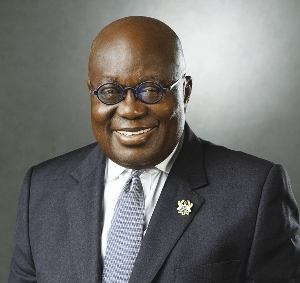- Home - News
- TWI News | TV
- Polls
- Year In Review
- News Archive
- Crime & Punishment
- Politics
- Regional
- Editorial
- Health
- Ghanaians Abroad
- Tabloid
- Africa
- Religion
- Election 2020
- Coronavirus
- News Videos | TV
- Photo Archives
- News Headlines
- Press Release
General News of Saturday, 12 January 2002
Source: .
Banking system to collapse if government absorbs TOR debt
The Deputy Finance Minister, Dr Gheysika Adombire Agambila has said that if the government attempted to play politics with Tema Oil Refinery debt of two trillion cedis and absorbed it the financial system in the country would collapse.
He said playing politics with fuel pricing as the National Democratic Congress (NDC) was trying to force the government to do would have catastrophic consequences since the amount owed by TOR was more than the total bank asset of 1.6 trillion cedis in Ghana.
This means: "Even if all the deposits of the banks were borrowed, TOR would still be in debt." Dr Agambila, therefore, called on the NDC to show a great deal of circumspection and understanding of the issues involved before "waging its relentless propaganda on government to reduce fuel prices".
The Deputy Minister gave this explanation when addressing two Peoples' Assemblies at Agormanya in the Manya Krobo District and Akosombo in Asuogyaman District in the Eastern Region on Thursday as part of activities marking the New Patriotic Party's (NPP) first year in office.
He said the NDC had "misunderstood the import parity formula adopted by the government for the determination of oil prices," noting that "the import parity did not depend solely on the world crude oil price as was often floated by the NDC".
The Deputy Minister stressed that it was not the pleasure of government to keep fuel prices high but that a way must be found to liquidate TOR's huge debts, which was accrued because of omission on the part of the NDC, which failed to increase fuel prices because it found it to be politically inexpedient in an election year - 2000.
Dr Agamibila stated that government would continue to maintain the Value Added Tax (VAT) because there was no alternative source of revenue to government. On the performance of the lotteries, he announced that in view of the privatisation policy adopted by the former government, the games sector, which used to contribute a large chunk of the national revenue, declined to almost zero.
This, he said, informed government's decision to disband private lotto operations in line with the practice in other parts of the world, noting that currently, the "lotteries were being run by individuals for their own benefit."
Dr Agambila said contrary to what was being canvassed by the opponents of the Highly Indebted Poor Countries (HIPC) initiative, the policy would benefit the country by helping it come out of its economic difficulties.










